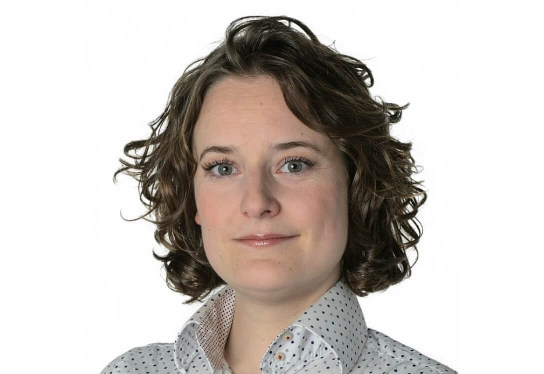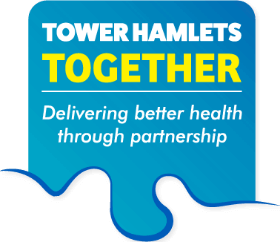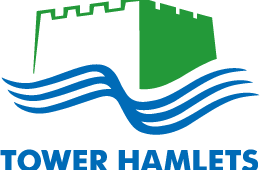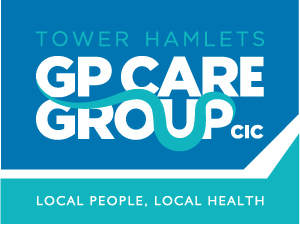Amy's Monthly Briefing - March 2023
The borough’s vision of a seamless health and care experience for its citizens.

The Board signed off the revised Place sub-committee Terms of Reference, which now reflects North East London’s mutual accountability framework
Apologies for the delay with this month’s briefing – I have been navigating the challenges of chicken pox with my 6 and 3-year-olds over the past three weeks! At March’s THT Board, we sadly said goodbye to Chris Banks, Co-CEO of the GP Care Group and a longstanding, much-valued member of the Tower Hamlets partnership in its many iterations over the years. We all wish Chris well with his retirement and I will personally miss his blend of expertise, candour and good humour in Board discussions.
We also confirmed that all our new clinical leads have been recruited and inducted. We’re so pleased to have a strong diversity of backgrounds, job roles and experience across the group, with lots of appetite for joint-working and meeting in-person (now we can) to take forward our integrated care ambitions. I also reported that work to commission £100k worth of anti-racism education across the partnership and to develop LGBTQ+ inclusion work is well underway, supported by me as Chair and Roberto as Clinical and Care Director.
The user voice slot this month was from the Women’s Health and Family Services, which was founded 42 years ago by local women and continues to be women-led. Karen from WHFS reported there are 18 languages spoken among their team and they provide three main services, working closely with other partners:
· HerHealth – a collaboration with the clinic at Mile End to support women who have experienced gender-based violence including cutting (FGM) to access gynaecological support;
· Healing Conversations – trauma counselling in four languages, group peer support for birth trauma and pregnancy loss (with Ocean and ELFT) and a women’s conversation café once a month;
· Maternity Mates – a collaboration between midwives, women with lived experience and WHFS staff, where volunteer ‘Mates’ walk alongside a woman during her pregnancy journey so she can access the care she needs and wants, and rebuild her confidence to make her own decisions. Many women accessing Maternity Mates have multiple complex needs e.g. being isolated, domestic violence, financial difficulties, homelessness, substance misuse, mental health, English as an Additional Language, being new to the UK. The volunteer Maternity Mates have training in trauma-informed and culturally competent care, with some using this as a stepping stone into midwifery/nursing careers.
In discussion, our Community Voice Lead Muna raised that the stillbirth rates for Black babies and maternal deaths for Black and Brown women remain disproportionately high compared to white people, and shared examples of women opting for private maternity care because they don’t feel safe to give birth in the NHS. The Board agreed this must be a major priority for our local system and a deep dive is planned. WHFS also called on THT to innovate how we co-design with communities – with more meaningful engagement, less duplication, fewer surveys, and demonstrating how their suggestions are taken forward. They also flagged the need to address the ‘bouncing effect’ – when women contact an agency/service and are not given a straight answer but passed around the system, which leads to disengagement – and to address the numerous health challenges posed by poor housing.
Next, the Board discussed areas for future deep dives, including maternity outcomes for Black and Brown families, LGBTQ+ health, housing (broken down into the aspects where the health and care system is affected and/or can influence), anti-racist commissioning, weight management (all ages), Special Educational Needs and Disabilities, workforce pressures and oral health. We then heard a presentation on implementation of the Fuller recommendations on greater integration of primary care into other services at neighbourhood level. This work will be a major transformation priority for THT and aligns strongly with our existing ambitions for developing our localities model – a new post is starting in May to lead this. The Board agreed we need a blueprint for change that aligns with the Fuller recommendations, our local community health services review and the council’s locality teams. A major current gap in our system is truly integrated neighbourhood teams, and we need to build these in partnership with local resident and voluntary sector forums. The Board asked for any additional resource to be weighted towards local teams and clinical leads, not just central programme management.
The Board signed off the revised Place sub-committee Terms of Reference, which now reflects North East London’s mutual accountability framework. We discussed financial delegation, as we still need to understand the totality of budget at Place, though it was confirmed some budget will be delegated e.g. health inequalities funding, a 1% top slice for investment in innovation, and the Better Care Fund. Board members asked how we can have more influence on big flows of money through the system, how we can use the quarterly finance reports better to guide our decisions, and whether we need a finance group to interrogate these reports before they come to the Board.
We also heard an update on the Local Delivery Board. Programmes are mostly progressing well and the LDB membership was recently surveyed about how it’s working. The results show a mixed picture, as while people value the opportunity to come together as system leaders, share information, be inspired, bond as a group and keep a focus on the integration agenda, the LDB is not really looking at system performance properly and 50% are unsure of its purpose. The Board agreed with the outgoing LDB Chair’s (Chris Banks) recommendation that now is the moment to re-purpose it and ensure it can provide the scrutiny and accountability needed to underpin Executive Board’s role as a Place sub-committee. Chris flagged now is the time to focus relentlessly on doing not just talking, focussing on health and care delivery not issues we don’t have remit over, and having a better mechanism for moving at pace and escalating systemic challenges up to the Board.
Finally, we had an update on the Local Infrastructure Forum which is working well and has good representation of estates leads across the system. Roberto will be the new Chair after Chris’ departure, ensuring primary care plays a strong lead role in these discussions.








